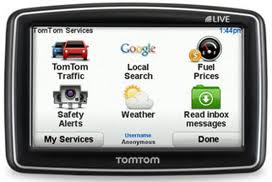Facebook Users Beware: GPS Data in Photos Can Reveal Where You Live
Twitter is the social-media platform that lets users communicate in short posts called tweets. It is very common for Twitter users to snap pictures using their mobile phone and to instantly upload them to Twitter. But users should beware, because you may be sharing more than just a photo. You may actually be revealing where you live, work and play.
Ever snapped a photo with your phone, then uploaded it to post on Twitter? You may have shared more than just an image. ICanStalkU.com was set up by tech consultants to alert Twitter users that their smartphone pics are embedded with GPS data, making it so easy to determine your precise latitude and longitude that “a first grader could stalk someone,” says cofounder Larry Pesce. For its part, Twitter’s image-hosting service strips geotagged data from phone-uploaded pics, but third-party services like TwitPic are still vulnerable. Twitter has twice suspended ICanStalkU’s account, calling the site’s cautionary tweets spam. But Pesce says, “If we thought of it, someone else much more evil and smarter has been using it.”
Did you know that GPS location data can be recorded when someone takes a picture of you?
According to the New York Times, when Adam Savage, host of the popular science program “MythBusters,” posted a picture on Twitter of his car parked in front of his house, he let his fans know much more than that he drove a Toyota Land Cruiser. Embedded in the image was a geotag, a bit of GPS data providing the longitude and latitude of where the photo was taken. Hence, he revealed exactly where he lived. And since the accompanying text was “Now it’s off to work,” potential thieves knew he would not be at home.
Geotagging is when a device such as an iPhone, Android smartphone or digital camera stores your location or geographical information, such as your GPS coordinates, within a photo or movie file (such as .jpg or .mov files). The tricky thing about geo-tags is that they are invisible to the naked eye. Geo-tags are part of the meta-data, or underlying data about the data, that accompanies each file. The problem occurs when you or someone you may know are geo-tagging your photos and then uploading them to the internet – especially social media sites like Twitter. When social media users take a picture or video and upload it to their page, they are probably transmitting far more data than they think.




